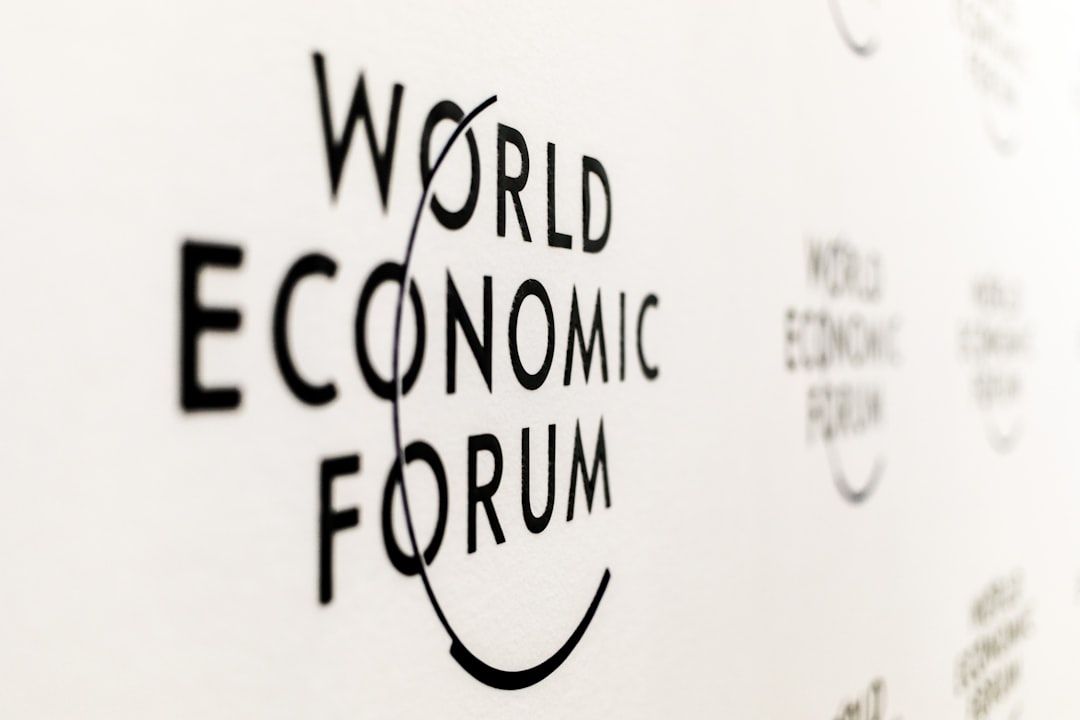The World Economic Forum Really Thinks That The Biggest Global Risk Is Democracy
Democracy Panic At Davos
The World Economic Forum gathers its troops together at Davos this coming week. It appears that its main concern is the outcome of the numerous elections that are coming up during the next couple of year. That is why they regard their lack of control over democratic decision making as the biggest threat facing their world.
If you want to understand why the globalist elite is so out of touch with the problems and challenges facing people and society than you must peruse through the World Economic Forum’s Global Risk Report 2024. Written for the those in attendance at this year’s WEF’s conference at Davos, the report outlines what the globalist oligarchs perceive to be the main risks confronting them. The Report is based on a Global Risks Perception Survey, which presumes to communicate the views of the experts and stakeholders who subscribe to the globalist consensus of the WEF.
This Report serves as a paradigm of what I diagnosed elsewhere as democracy panic. The current wave of Democracy Panic is spread by people who believe that the ‘demos’ are influenced by prejudice and fake news.
The tone of the Report is grim. It warns that the ‘eruption of active hostilities in multiple regions is contributing to an unstable global order characterized by polarizing narratives, eroding trust and insecurity’. Throughout the report references are made to the scourge of ‘polarising narratives’. The WEF’s anxiety regarding ‘polarising narratives’ is not surprising since what this term refers to is the emergence of anti-elitist and counter-cultural ideals that challenge the outlook of a complacent ruling elite. Coupled with the obsession with ‘polarising narratives’ is a near hysterical concern with the risk represented by ‘misinformation and disinformation’.
The Global Risk Report 2024 more or less claims that misinformation and disinformation constitute the greatest risk facing society in the period ahead. It notes that:
‘emerging as the most severe global risk anticipated over the next two years, foreign and domestic actors alike will leverage Misinformation and disinformation to further widen societal and political divides’!
The report explicitly connects the alleged risks posed by fake news to its concern with the outcome of the numerous elections that will be held in the next two years. It states that;
As close to three billion people are expected to head to the electoral polls across several economies – including Bangladesh, India, Indonesia, Mexico, Pakistan, the United Kingdom and the United States – over the next two years, the widespread use of misinformation and disinformation, and tools to disseminate it, may undermine the legitimacy of newly elected governments. Resulting unrest could range from violent protests and hate crimes to civil confrontation and terrorism.
As Carolina Klint, Europe chief commercial officer for consultants Marsh McLennan, which helped produce the Report’s findings stated ‘'The potential impact’ of fake news ‘on elections worldwide over the next two years is significant and that could lead to elected governments' legitimacy being put in question’.
Since competing claims about what is and what is not true have plagued elections since the beginning of modern times it is far from clear as to why they should constitute such a dangerous global threat to humanity.
The report acknowledges that ‘misinformation and disinformation have long histories’ but asserts that the ‘the erosion of political checks and balances, and the growing sophistication of tools that spread and control information, could ‘amplify the efficacy of domestic disinformation over the next two years’. For the authors of the report the development of new technologies coinciding with the erosion of trust in the political establishment and its institutions creates the conditions where fake news represents an unprecedented threat to global stability.
There is little doubt that new technologies such as AI generated content can provide new opportunities for confusing and misleading the public with false information. But virtually every new form of communication technology since the invention of the printing press has possessed the potential to promote lies and distort reality. Coping with this threat has been integral to the political and socio-economic challenges facing society throughout modern times. From small self-serving misinformation to the Big Lie society has always been confronted with the challenge to uphold the truth. That this normal problem of modern society is elevated to the task of an existential threat is not so much driven by the problem posed by the new technologies of misinformation but by concern with the uncertainty posed by democratic decision making.

Who gets to decide what is false and what is true?
At the heart of the discussion about Fake News is the questions of who gets to decide what is false and what is real. And that is a roundabout way of saying who gets to decide what is true. One of the most important ways that a society comes to a consensus about what is true is through argument and debate and political struggle. Democratic elections are not just about choosing specific policies but also about deciding whose view of the world should prevail. In recent elections the hitherto hegemonic status of the globalist worldview has come under challenge by newly emerging populist and anti-status quo movements, many of whom have gone from strength to strength. It is the fear of the outcome of the many impending elections that have motivated the authors of the WEF report to brand misinformation as a global existential threat.
When the report raises the alarm about the possibility of fake news hijacking elections in 2024 and 2025 what it is really saying is that the wrong kind of people and parties could prevail. It is worth noting that the emergence of concern with Fake News coincided with the failure of the forces of globalism to manage the June 2016 Brexit Referendum in their favour. The election of Donald Trump later that year was frequently ascribed to the role played by fake news social media platforms and other nefarious technologically created false propaganda.
2016 marked a turning point in the fortunes of the political and cultural elites who subscribe to WEF’s cosmopolitan orientation. Ever since the Brexit Referendum in June 2016, the proceedings at the World Economic Forum have been haunted by the challenge that this event posed for the globalist outlook of those in attendance. From their perspective Brexit symbolised the threat that populism represented to their way of life. Writing in Forbes a month after the referendum, one journalist correctly characterised this event as ‘The Populist Revolt Against “Davos Man”’. Kenneth Rapoza observed that ‘Brexit proved once again that Davos Man isn't all-knowing’. He added that Davos Man ‘has the rhetoric down and he knows how to spread the gospel, but beyond that, their near-term predictions lack vision’.
To this day Brexit is perceived as the launchpad for a global populist revolt. Writing in The Washington Post last year Ishaan Tharoor claimed that in the U.S. House drama, you can see the long tail of Brexit’. Most supporters of Brexit have no idea how much consternation their triumph caused to the global cosmopolitan network consisting of Remainers, EU ideologues and their allies in the World Economic Forum. Their sense of alarm was well captured a month after the referendum by the economic commentator Anatole Kaletsky. He noted that ‘Europe’s fear of contagion is justified, because the Brexit referendum’s outcome has transformed the politics of EU fragmentation’. He added that ‘Brexit has turned “Leave” (whether the EU or the euro) into a realistic option in every European country’.
Back in June 2016, when Kaletsky expressed his sense of alarm, the populist movement that led to Britain leaving the EU could still be dismissed as a one-off event. At successive annual meetings of the Davos clique, participants expressed the hope that the threat posed by their populist opponents had waned. The well-known Indian-American commentator, Fareed Zakaria was hopeful that ‘2023 could be the year that exposes populism for the sham that it is’. Numerous anti-populist commentators echoed his sentiment. ‘We seem to have passed peak populism’, predicted Andrew Adonis, a leading British Remainer voice. He described Brexit as ‘an absurd and damaging project based on a host of populist lies’. Adonis’ association of populism with ‘lies’ and dishonesty expressed the principal argument that his side uses to undermine the moral status of their opponent. Through drawing a contrast between the fake populist and the truthful Davos Man people like Adonis imagine that they can undermine the appeal of their political foes.
It has been well over seven years since Kaletsky has raised the alarm about the challenge posed by populism to the institutions of the EU. Since that times movements that are designated as populists have gained considerable momentum. The election of Giorgia Meloni in Italy in 2022 clearly showed that despite the accusation that her party relied on populist lies her party could win. Recently the surprise victory of Geert Wilders and his Freedom Party in Netherlands showed that populism has become a serious force. In France, Marine Le Pen and her party the National Rally is now leading all the opinion polls. A similar pattern of growing support for populist parties is evident in Germany, Austria, Belgium, Sweden and other parts of Northern Europe.
There are some deluded adherents of the WEF’s worldview who actually believe that the principal factor contributing to the success of populist parties is their weaponization of misinformation and lies. However, the inventors of the claim that fake news has become a global existential risk are opportunistic purveyors of this argument. What they are really worried about is their inability to manage democracy. Their elevation of Fake News into a global risk serves as a form of Freudian displacement activity. Unable to face the truth, which is that they lost the argument they point the finger of blame on the influence of lies and misinformation. In this way their inability to convince the electorate is blamed on the nefarious dishonesty of their opponents.
Concern with Fake News not only represents an attempt to discredit political opponents, but it also represents the denigration of the capacity of citizens to make informed choices in elections. From this perspective those who reject the advice and outlook of the WEF oligarchy are not independent minded and intelligent voters, but unthinking people drawn towards the purveyors of Fake News. The logical outcome of this perspective is the conviction that citizens are not fit to make difficult political choices and therefore they must be protected from the consequences of their action.
Paradoxically the Report recognises that the proliferation of misinformation is likely to encourage Governments and media outlets to tighten the policing of public discussions. It warns that as it becomes harder to tell the difference between what is real and fake, press freedom could be threatened. Its reservations about the threat posed by the policing of public debate notwithstanding, the authors of The Report have supported and highlighted the argument used to justify the creation of new systems of gatekeeping and fact checking on the web. Its concern about press freedom is a form of hypocrisy- the compliment that vice pays to virtue.
One final point. Perversely the hysteria promoted about the threat posed by misinformation and Fake News has the effect of disorienting public life. The constant assertion that this or that claim is Fake News leads many people to mistrust mainstream media sources of information Loss of faith in established media institutions and narratives often runs in parallel with the proliferation of fantasies about conspiracies.
Whatever its genuine objective the authors panic about technology assisted misinformation actually contributes to the erosion of trust relations within society. But that’s not a problem for the WEF. What they are worried about is the threat to their way of life posed by democracy.



